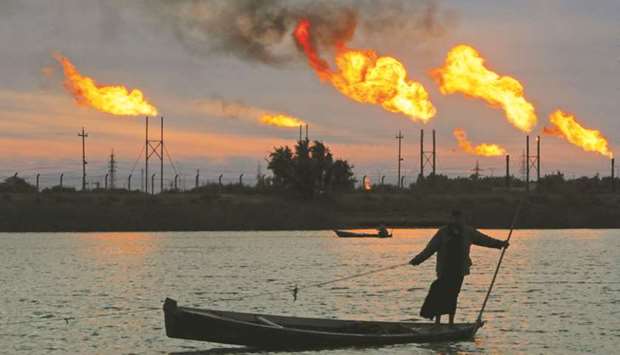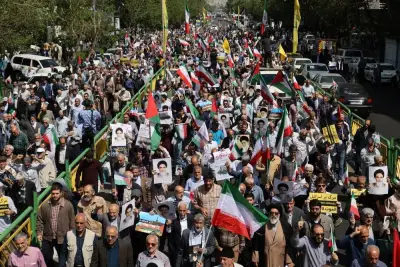Iraq is ready to boost oil exports by 250,000 barrels a day to compensate for any shortfalls once US sanctions waivers for Iranian oil end, a government official said yesterday.
The US last year reimposed tough sanctions against Iran’s energy sector but granted select countries six-month waivers to continue importing oil products from Tehran.
Those exemptions will end in early May, the White House announced yesterday.
US President Donald Trump said that Saudi Arabia and other members of the Organization of the Petroleum Exporting Countries (Opec) would “more than make up” the resulting difference in the oil supply.
Iraq, the group’s second-largest producer, has the capacity to increase its crude oil exports, a top government official told AFP yesterday.
“We are ready to export another quarter-million barrels daily.
The market’s needs will become clearer in the coming days,” he said.
The official did not say whether Iraq had already discussed the increase with Opec or with the US.
The countries that had received exemptions in November were China, India, Japan, South Korea, Turkey, Italy, Greece and Taiwan.
Iraq received a separate waiver that would allow it to continue importing Iranian gas and electricity, crucial to stop up the widespread power shortages in Iraq.
That initial exemption has been extended twice, and is set to end in June.
Iraq last month exported just under 3.4mn barrels per day, after having agreed last year to trim production alongside other producers so that prices would go up.
Oil prices hit a five-month high earlier this month at more than $70 per barrel.
Iraq has no alternative to importing Iranian gas, the country’s electricity ministry said yesterday, adding that halting imports would cost Iraq’s power grid 4,000 megawatts per day.
“Until now, we have no alternatives to replace imports of Iranian gas,” ministry spokesman Musab al-Mudaris told reporters on the sidelines of an energy forum in Baghdad.
Iraq relies heavily on Iranian gas imports to feed its power grid.
Iraq generates 14,000 megawatts on the national grid, with an additional 4,000 megawatts generated by imported gas and power.
Gas imports to Iraq from Iran will increase to 35mn cubic metres per day in June from 28mn cubic metres, Mudaris added.
This is expected to increase the power generated by Iranian imports to 4,700 megawatts, Mudaris said.
Iraq’s power needs are growing by 7% each year, he said.
In the summer months starting in June, when temperatures across southern Iraq soar, demands on the grid reach up to 24,000 megawatts per day, he added.
Last year, power shortages led thousands of protesters to rally across Iraq’s oil-rich south, causing serious disruptions and clashes with security forces.
Many are bracing for another round of protests this summer.
Iraq has received repeated extensions to a US waiver to continue importing Iranian gas since US President Donald Trump restored sanctions on Iran’s vital energy sector in November.
In March, Iraq was granted another 90-day waiver.
Last month, Iraq agreed a contract with Siemens to rehabilitate Kirkuk’s power infrastructure and boost its production to 260 megawatts up from 100 megawatts now.

Flames emerge from flare stacks at the oil fields in Basra. Iraq, Opec’s second-largest producer, has the capacity to increase its crude oil exports, a top government official told AFP yesterday.


